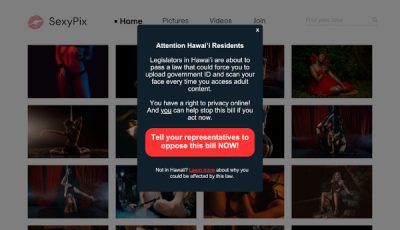FSC to Rashida Jones: ‘Ethics and Performer Safety Matter’
 LOS ANGELES – Free Speech Coalition is calling out Rashida Jones and the other producers of the Netflix docu-series Hot Girls Wanted: Turned On. The adult industry advocacy and trade organization is insulted and saddened by the producers’ cavalier attitude about allegations of performer harassment and the dismissive tone with which the producers have spoken about the controversy.
LOS ANGELES – Free Speech Coalition is calling out Rashida Jones and the other producers of the Netflix docu-series Hot Girls Wanted: Turned On. The adult industry advocacy and trade organization is insulted and saddened by the producers’ cavalier attitude about allegations of performer harassment and the dismissive tone with which the producers have spoken about the controversy.
More than that, though, FSC is worried about performers’ safety and wellbeing. According to Executive Director Eric Paul Leue, performers approach FSC almost daily with more complaints about how HGW invaded their privacy, in the process harming them, their families and their community standing.
“Over the past several weeks, numerous performers have come forward, both publicly and privately, saying that they were deceived and exposed by the producers of the series,” Leue said. “As a result of the series’ disclosure of performers’ real names, performers have been threatened and their family members harassed. We are asking Netflix and the Hot Girls Wanted: Turned On team to meet with performer advocates about possible remedies.”
To that end, FSC outlined specific harmful incidents in a May 16 letter to HGW producers Jones, Ronna Gradus and Jill Bauer, and Netflix Chief Content Officer Ted Sarandos.
It is difficult to believe that Netflix condones the unethical, and legally questionable, practices employed by the producers of Hot Girls Wanted: Turned On, considering that they are in direct conflict with Netflix’s stated values, the ethics of documentary filmmaking and the core tenets of [the adult] industry. These practices have and continue to cause serious harm, yet nothing is being done by either the producers or Netflix to protect the vulnerable …
The performer whose legal name was exposed in the documentary against their will, and despite verbal promises from producers, has since our last letter had her family harassed. Mail containing graphic images of her work was recently received at her mother’s home address, family members at different addresses have received similar mail, and the performer has been threatened online …
Contrary to the producers’ assumptions, not all exposure is good. Webcam models have the right to limit the states or countries where their shows can be seen so that family members, neighbors, landlords, predators or others cannot access or identify them. When the series shows a customer logging into the member areas of webcam sites, several models’ faces, names and other identifiable characteristics are clearly visible. In broadcasting these streams to an international audience, Netflix has unwittingly outed them, bypassing a standard industry practice intended to protect models.
Marketing materials for the docu-series state the producers set out to “reveal how technology is changing the face of the porn industry — and sex itself.” Industry insiders who agreed to be filmed for the project have said they were led to believe the series would present a sympathetic look at a group that frequently is marginalized and stigmatized.
Instead, they feel violated and preyed upon.
“It is ironic — and disturbing — that a mainstream series which purports to address workplace ethics among adult film performers and focus on issues of empowerment appears to exploit them for its own gain,” FSC noted in an April 28 letter to Jones, et al, to which the FSC has received no response. “If the allegations against this project are substantiated, the producers may be perpetuating unfair labor practices against adult performers on their own production.”
And that, said Leue, is the unkindest cut of all. Besides appearing to be deeply cynical and demonstrating callous disregard for a vulnerable population, HGW’s producers also may have violated the very values they aspire to uphold as documentarians: do no harm and protect the vulnerable.
Leue said FSC representatives want a meeting with HGW’s producers and Netflix representatives in order to address what he called “a massive outcry” not only from within the adult industry, but also among academics and social-service organizations that fight exploitation.
“We hope Netflix will respond as the ethical company they are and turn this into a learning moment,” he said. “We’re not asking for any alteration of the way they present the industry. We don’t want them to correct facts, even though we believe they got some things wrong. All we’re asking is for core values to be upheld.
“We believe Netflix will pause distribution and obscure the identities of people who did not give permission or withdrew permission [for their images and names to be included in the production], in order to prevent further harm,” he added.













